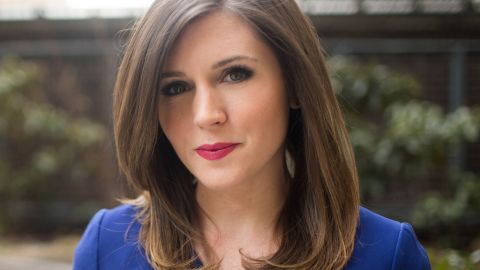Editor’s Note: Jill Filipovic is a journalist based in New York and author of the book “OK Boomer, Let’s Talk: How My Generation Got Left Behind.” Follow her on Twitter. The opinions expressed in this commentary are solely her own. View more opinion on CNN.
CNN
—
Once upon a time, Rebecca Solnit wrote in a lyrical column: “There was a man who was in charge of stories. He decided that some stories would be born, expensive, glamorous stories that cost more than a hundred minimum-wage earners might make in a hundred years, filmy stories with the skill of more hundreds expended so that they would slip in like dreams to the minds of millions and make money, and he made money and the money gave him more power over more stories.”
She continued: “There were other stories he decided must die. Those were the stories women might tell about what he had done to them, and he determined that no one must hear them, or if they heard them they must not believe them or if they believed them it must not matter.”
The stories about America’s most famous story killer have now been told, and told again. Since the New York Times and The New Yorker broke the news of Harvey Weinstein’s serial acts of assault and harassment, the list of men publicly indicted for mistreating women has ballooned beyond memory.
#MeToo remains a movement in progress, albeit one that has slowed. And two new films, “She Said” and “Women Talking,” provide important capstones to what has been a very vocal, if incomplete, revolution. Both are stories about the power of women speaking out, and, importantly, both are stories brought to the silver screen by women, who are retelling the stories female journalists first told, which other women told to them.
These are movies women built. And they are an inversion of what made men like Weinstein so noxious: Weinstein wasn’t just a powerful man, he was a man who, as Solnit writes, held the power to tell us stories about ourselves, to determine which stories mattered, which narratives would be definitional, universal, valuable.
His misogyny wasn’t just an interpersonal failing; it meant something that a man who treated women with violence, coercion and contempt was also a man who shaped the cultural products that help us to…
Click Here to Read the Full Original Article at CNN.com – RSS Channel – HP Hero…

